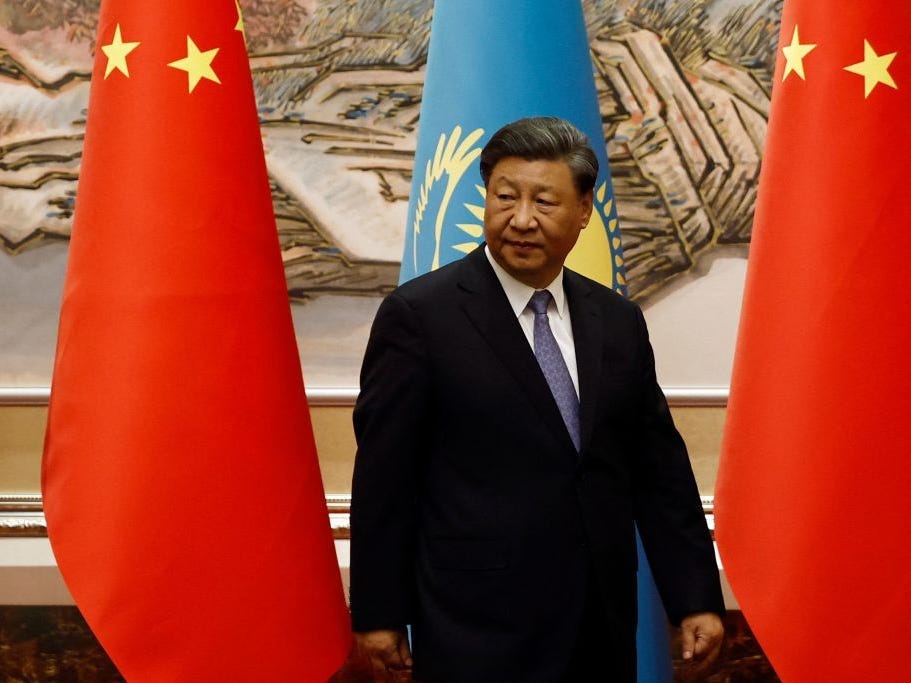-
Members of the Shanghai Cooperation Organization will meet in Kazakhstan on Wednesday.
-
The event takes place at a time when tensions are rising between two of the group’s most powerful members.
-
Russia and China compete for influence in Central Asia.
Leaders of a group of countries seen by Russia and China as a counterweight to Western global power are meeting in Kazakhstan this week.
At the Shanghai Cooperation Organization (SCO) in the capital of Kazakhstan, Astana, the Russian President Vladimir Putin is scheduled to meet with Chinese President Xi Jinping.
During their discussion they will reportedly seeking ways to expand the organization as part of their shared mission to push back against US global power.
But despite their “no limits” partnership, which was brokered on the basis of a shared hostility towards the US and its NATO allies, there are growing differences between Putin and Xi.
Ukraine has changed the balance of power
The leaders are engaged in a fierce battle for influence over the SCO’s original members: the Central Asian republics of Kazakhstan, Kyrgyzstan, Tajikistan and Uzbekistan.
The SCO was formed as a regional security pact but has expanded in recent years to include India, Pakistan and Iran. Belarus, another NATO adversary, is expected to be admitted this week.
The Central Asian republics were formerly part of the Soviet Union and are traditionally considered part of the Kremlin’s sphere of influence.
But the war in Ukraine has changed the balance of power.
The Russian invasion of Ukraine has drained the Kremlin’s resources, money and energy, while putting countries that trade with Russia at risk of Western sanctions.
Meanwhile, Beijing has quietly taken advantage by striking trade deals and building political influence in the region.
“The war in Ukraine has shown the countries of Central Asia that diversifying their ties with the world is key to their successful existence in the region,” said Temur Umarov, a fellow at the Carnegie Russia Eurasia Center. told The Guardian.
China is building car factories and power plants in Ukraine and Kazakhstan, brokering deals on surveillance software and expanding its direct rail line to Kazakhstan to further strengthen trade ties.
China-Central Asia trade grew 27% to $89 billion in 2023, according to Chinese customs data.
While Russia is likely concerned about the developments, there is not much it can do about it.
A skewed collaboration
Russia has become increasingly dependent on China for diplomatic and economic support as the West tries to isolate Russia over the war in Ukraine.
“The importance of Chinese aid and indirect support for Ukraine is paramount for Moscow and will determine its approach to Beijing as long as the confrontation with the West continues,” Emil Avdaliani, professor of international relations at the European University in Tbilisi, wrote in January for the Centre for European Policy Analysis.
Russia is trying to boost trade with the Central Asian republics, reportedly using them to obtain goods banned under Western sanctions. But it cannot compete with China’s economic power.
Russia uses its ties with China as evidence that the West is failing to isolate it. But this friendship comes at a high price.
“We are friends with Russia, but at the same time we are looking for opportunities,” Mirshohid Aslanov, founder of the Tashkent-based think tank Center for Progressive Reform, told The Wall Street Journal. “We look very eagerly to the East.”
Read the original article at Business insider







